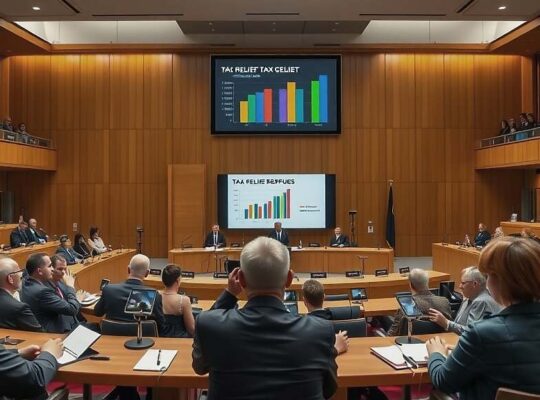A recent survey conducted by the “Süddeutsche Zeitung” across Germany’s 16 federal states reveals a significant decline in the number of tax auditors employed, leading to a corresponding decrease in tax revenue recovered through audits. The data indicates that small businesses are now subject to inspection, on average, only once every 150 years.
Over the past decade, the number of company tax audits has fallen by nearly 60 percent, reaching just 140,000 in the most recent period. Simultaneously, the number of auditing officials within state financial authorities decreased to 12,359 last year – a reduction of almost 10 percent since 2015.
The total amount of additional tax revenue collected through these audits is also trending downwards. From an average of approximately 16 billion euros in the early 2000s and 2010s, collections fell to just under 11 billion euros last year. This decrease occurs at a time when the government is actively seeking additional funding; current financial planning estimates a shortfall of over 170 billion euros for the period 2027-2029, according to Federal Finance Minister Lars Klingbeil.
The trend appears paradoxical given the widely accepted calculation that each auditing official generates, on average, one million euros in additional revenue for the public sector annually – significantly more than the cost of their employment to the respective state. Critics have long argued for an increase, rather than a decrease, in the number of auditors.
According to the Federal Finance Ministry, only 16 out of every 1,000 businesses were audited last year – less than one in sixty. However, audit frequency varies considerably based on company size. Medium-sized and large companies faced audit rates of approximately 296 and 183 per 1,000 respectively, while corporations are subject to continuous monitoring through multi-year reviews of submitted data. Conversely, small businesses can expect an audit, on average, every 38 years and micro-businesses – constituting over 80 percent of all German companies – are inspected only once every 150 years.
State governments cite a shortage of qualified personnel as one contributing factor to the decline. They also point to the increasing complexity and time-consuming nature of audits, compounded by demands on auditors to assist with other projects, such as the recent property tax reform.
Anne Brorhilker, a former public prosecutor and current Executive Director of the “Finanzwende” initiative dedicated to combating financial crime, voiced concerns over the situation. “Anyone who wants to strengthen our rule of law and, therefore, our democracy must significantly strengthen the financial authorities in terms of personnel and structure. Anything else is negligent” she stated. Brorhilker suggested that if states are unable to hire sufficient staff, the federal government should intervene, potentially by providing federal auditing officials.












